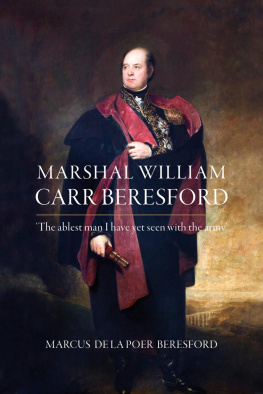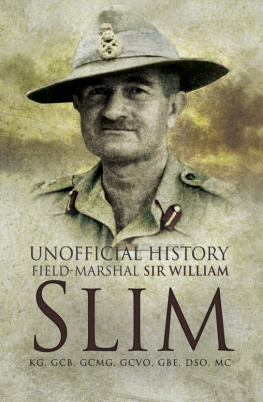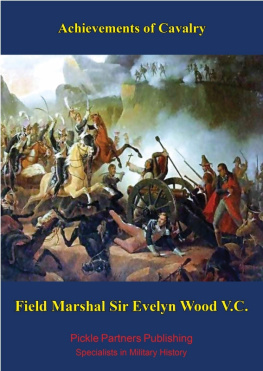Georges Duby - William Marshal
Here you can read online Georges Duby - William Marshal full text of the book (entire story) in english for free. Download pdf and epub, get meaning, cover and reviews about this ebook. year: 2011, publisher: Knopf Doubleday Publishing Group, genre: Detective and thriller. Description of the work, (preface) as well as reviews are available. Best literature library LitArk.com created for fans of good reading and offers a wide selection of genres:
Romance novel
Science fiction
Adventure
Detective
Science
History
Home and family
Prose
Art
Politics
Computer
Non-fiction
Religion
Business
Children
Humor
Choose a favorite category and find really read worthwhile books. Enjoy immersion in the world of imagination, feel the emotions of the characters or learn something new for yourself, make an fascinating discovery.

- Book:William Marshal
- Author:
- Publisher:Knopf Doubleday Publishing Group
- Genre:
- Year:2011
- Rating:4 / 5
- Favourites:Add to favourites
- Your mark:
- 80
- 1
- 2
- 3
- 4
- 5
William Marshal: summary, description and annotation
We offer to read an annotation, description, summary or preface (depends on what the author of the book "William Marshal" wrote himself). If you haven't found the necessary information about the book — write in the comments, we will try to find it.
William Marshal — read online for free the complete book (whole text) full work
Below is the text of the book, divided by pages. System saving the place of the last page read, allows you to conveniently read the book "William Marshal" online for free, without having to search again every time where you left off. Put a bookmark, and you can go to the page where you finished reading at any time.
Font size:
Interval:
Bookmark:
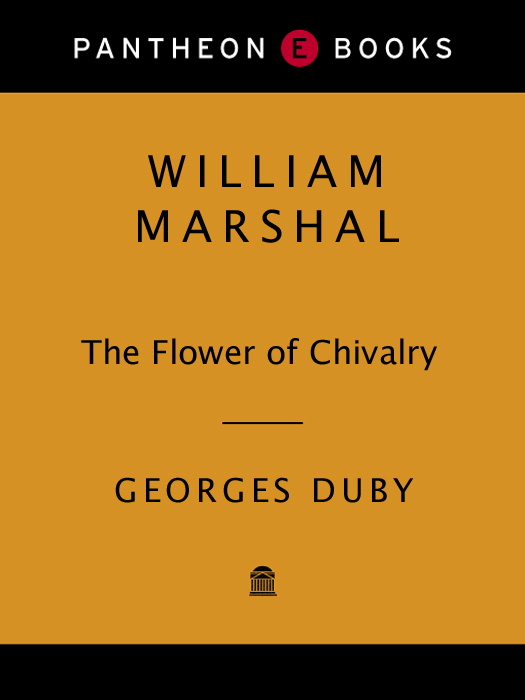
ALSO BY GEORGES DUBY
Rural Economy and Country Life in the Medieval West
The Early Growth of the European Economy
Medieval Marriage: Two Models from Twelfth-Century France
The Chivalrous Society
The Three Orders: Feudal Society Imagined
The Age of the Cathedrals
The Knight, the Lady, and the Priest
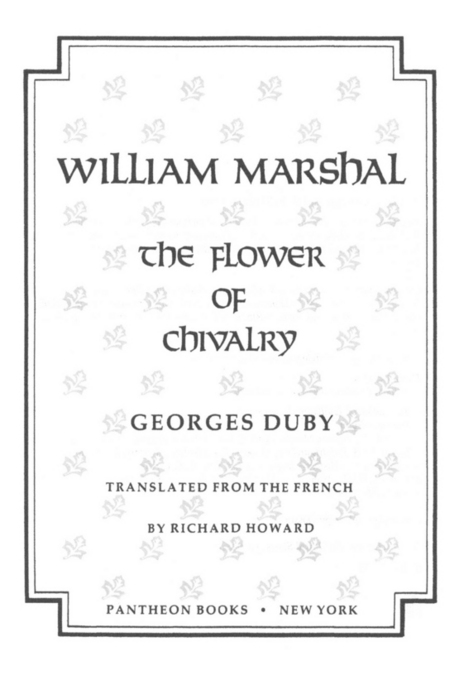
Translation Copyright 1985 by Richard Howard
All rights reserved under International and Pan-American Copyright Conventions. Published in the United States by Pantheon Books, a division of Random House, Inc., New York, and simultaneously in Canada by Random House of Canada Limited, Toronto.
Originally published in France as Guillaume le Marchal by Librairie Arthme Fayard. Copyright 1984 by Librairie Arthme Fayard. This translation first published in hardcover in the United States by Pantheon Books, a division of Random House, Inc., in 1985.
Library of Congress Cataloging-in-Publication Data
Duby, Georges.
William Marshal: the flower of chivalry.
Translation of: Guillaume le Marchal.
Bibliography: p.
1. Pembroke, William Marshal, Earl of, 1144?1219. 2. RegentsGreat BritainBiography. 3. Knights and knighthoodGreat BritainHistory. 4. Chivalry. 5. Great BritainHistoryAngevin period, 11541216. I. Title.
DA209.P413D82 1986 942.0340924[B] 85-42837
eISBN: 978-0-307-77899-4

v3.1

1
T HE EARL can bear no more. The burden is too great for him now. Three years ago, when he was urged to assume the regency, when he reluctantly agreed, becoming master and guardian of the boy king and of the whole realm of England, he had said and said again, I am too old, too weak, too out of joint. Over eighty, he had claimed, exaggerating a little, not really knowing how old he was. Who knew such things in those days? Other dates in life mattered more than when you were born. You could forget that one. And grand old men were so rare that you made them out even older than they reckoned themselves. Moreover, we ourselves dont know just when William Marshal was born. The historians have worked it out; they propose around 1145. No more specific than that. His birth is too low for the archives to be much help. Whereas in the year we are now speaking of1219fortune has raised him so high that we can follow, almost day by day, his final deeds, his last exploits.
Robust he had remaineda very long time. He had been seen fighting the French at Lincoln on May 20, 1217, like a youth among his peers. Three months later, his men had still had to hold him backdid he not try to join the sailors at Sandwich and board the French fleet? But all of a sudden, on Candlemas of 1219, he gave way. He had felt it coming, and for some time, without speaking of it, had been preparing for his last campaign. He returned for a spell to Marlborough Castle, probably his own birthplace. On March 7 he is at Westminster, and from there, riding down his pain, he reaches the Tower of London, as if to huddle behind the walls of the old royal stronghold. He takes to his bed. It is the beginning of Lent. What better time to suffer, to accept your suffering, to endure it in remission of your sins, and to purify yourself slowly, calmly, before the great journey? His countess is beside him, as always. When he weakens, when the doctors admit they can do no more, William Marshal summons those who have accompanied him ever since he quit private life. Naturally. Necessarily. Had he ever been alone? Who is ever alone at the beginning of the thirteenth century but the mad, the possessedmarginal figures who are hunted down? An orderly world requires that each man remain swathed in a fabric of solidarities, of friendships, in a corps. William summons those who constitute the body of which he is the head. A group of men. His men: the knights of his house; and then his eldest son. He requires this numerous retinue for the great ceremony about to beginthat of a princely death. Once everyone is there to form the cortege, he gives orders that he be borne away. At home, he says, he will suffer more comfortably. Best to die in your own house. Bear him to Caversham, to his own manor. He owns many, but this is the one he chooses, for in the country of his birth it is the closest, the most accessible. Mounting a horse is out of the question now; the Thames will bear him to it. So on March 16, William, Earl of Pembroke, is arrayed by his people in one boat, his wife following in another, and gently, without great exertion, the little convoy is rowed upstream.
On arrival, his first concern is to free himself from the burden that weighs upon him. The man whose end is approaching must gradually rid himself of everything, and before all else, the honors of this world. First act, first rite of renunciation. Ostentatious, like all the acts to follow, for good deaths in this age are festivities, they are performed as on a stage before many spectators, many auditors attentive to every gesture, to every word, eager for the dying man to show what he is worth, to speak, to act according to his rank, to bequeath a final example of virtue to those who will follow. Each man, in this fashion, as he leaves the world is obliged, one last time, to shore up that morality which holds the social body together, which allows each generation to succeed the next in the order pleasing to God. And we, who no longer know the meaning of a sumptuous death, we who hide death away, who hush it up, who get rid of it as fast as we canan embarrassing businesswe for whom a good death must be swift, discreet, solitary, let us take advantage of the fact that the greatness to which the earl has acceded puts him, for our eyes, in an exceptionally brilliant light. Let us follow step by step, in all the details of its unfolding, the ritual of death in the old style, which was not an evasion, a furtive exit, but a slow, orderly approach, a careful prelude, a solemn transfer from one condition to another, to a higher state, a transition as public as the weddings of the period, as majestic as the entrances of kings into their fine cities. The death that we have lost and that, it may well be, we miss.
The office that still invests the dying earl is of such weight that every man of consequence within the state must see with his own eyes how William leaves it, and what he will do with it. The king, of course, and the papal legate as wellsince Rome, in this first quarter of the thirteenth century, regards the kingdom of England as under its protection and controlthe capital justiciar, but also all the higher barony. A great crowd, which has gathered for this purpose and cannot be contained within the manor house of Caversham. It encamps across the river, at Reading, in the great royal monastery and its grounds. William cannot leave his bed. Therefore, the great men of the realm cross the river to stand at his bedside. On April 8 or 9 they come into his chamber, accompanying a boy of twelve, young King Henry. It is this child whom the earl begins by lecturing from his bed, apologizing that he can serve him no longer and elaborating that sermon which, according to the rules, all fathers must make on their deathbed to their eldest son and heir. William admonishes the boy, commends him to a proper life, and prays God, he says, to bring him to immediate ruin should he become, by some mischance, a traitor in the unfortunate fashion of some of his forebears. And the entire company replies, Amen. Then the earl dismisses them. He is not ready. He needs the night to determine who shall succeed him as guardian. He decides to pass over the bishop of Winchester, an ambitious man who just now had held the boy fast, presuming he had control over him because in 1216 the earl had entrusted to his vice-regency a child too young to accompany the regents incessant expeditions; and now the bishop was trying to get the boy into his power. William needs time to think, to seek advicefrom his son, his people, his intimates. In his own family, in private, he makes up his mind: there are too many rivalries in the country today. Were he to entrust Henry, third of the name, to one faction, others would thereby be roused, and once again there would be war. Of all the barons, William alone had the necessary authority. Who could take his place? God, quite simply. God and the pope. To them, therefore, he will entrust the kingthat is, to the legate who stands for the former, and in England for the latter.
Font size:
Interval:
Bookmark:
Similar books «William Marshal»
Look at similar books to William Marshal. We have selected literature similar in name and meaning in the hope of providing readers with more options to find new, interesting, not yet read works.
Discussion, reviews of the book William Marshal and just readers' own opinions. Leave your comments, write what you think about the work, its meaning or the main characters. Specify what exactly you liked and what you didn't like, and why you think so.


